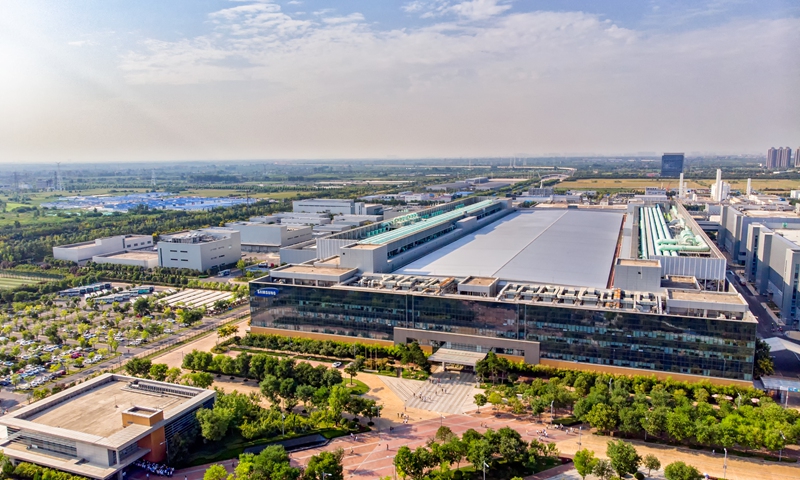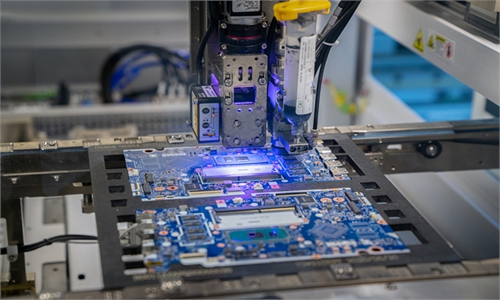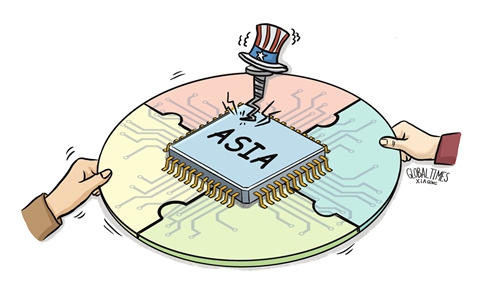
Samsung Electronics' semiconductor factory in Xi'an, Northwest China's Shaanxi Province Photo: VCG
Foreign high-tech manufacturers have seen only limited impact on their operations in Xi'an, a major production and logistics hub in Northwest China's Shaanxi Province, despite tougher epidemic prevention and control measures, industry insiders told the Global Times on Monday.
The strict and timely control of the epidemic in Xi'an is a good example of how to ensure smooth business operations amid epidemic prevention, industry insiders said, noting massive disruptions of factories in countries such as India.
Amid new COVID-19 cases, Xi'an imposed strict restrictions on people leaving and coming into the city since Wednesday. Residents were also required to stay home for nucleic acid testing.
At noon on Monday, the city launched a new round of nucleic acid screening for all residents.
But despite the anti-epidemic measures, normal factory operations of major foreign companies have been largely undisrupted.
Samsung's two large factories in Xi'an have not been affected by the epidemic control with its implementation of a closed-loop management, according to a report shared with the Global Times on Monday.
The two factories of the South Korean conglomerate fabricate 3D NAND high-end products, accounting for 42.3 percent of the company's flash memory chip (NAND) production capacity and 15.3 percent of the world, according to TrendForce.
Samsung Electronics' local semiconductor factory is following emergency procedures to ensure normal production, Yonhap News Agency reported.
In addition to being Samsung's NAND Flash production center, Xi'an is also a memory packaging and testing base for Micron, a US-based chip producer.
TrendForce's survey showed that the actual packaging and testing operations of Micron have not been affected.
While the region accounts for a relatively low percentage of overall packaging and testing capacity, spot prices may fluctuate in the short term due to possible logistics disruptions, industry insiders said.
But the impact on market prices will be very limited since production has not been affected, TrendForce's analysts noted.
The foreseeable impact on production in the region is limited and manageable, given the effective epidemic prevention moves, Ma Jihua, an independent industry analyst, said.
"Instead of just closing cities, like some South and Southeast Asian countries, we also have a complete set of supporting measures for epidemic prevention," Ma said.
For example, drivers can travel in and outside cities without coming into contact with anyone, which reduces the risk of infection while maximizing supplies, Ma said.
With strict epidemic prevention in place, it is entirely possible to bring the outbreak under control in Xi'an in late January, Zhang Boli, a medical expert and academician with the Chinese Academy of Engineering, has predicted, according to media reports.



